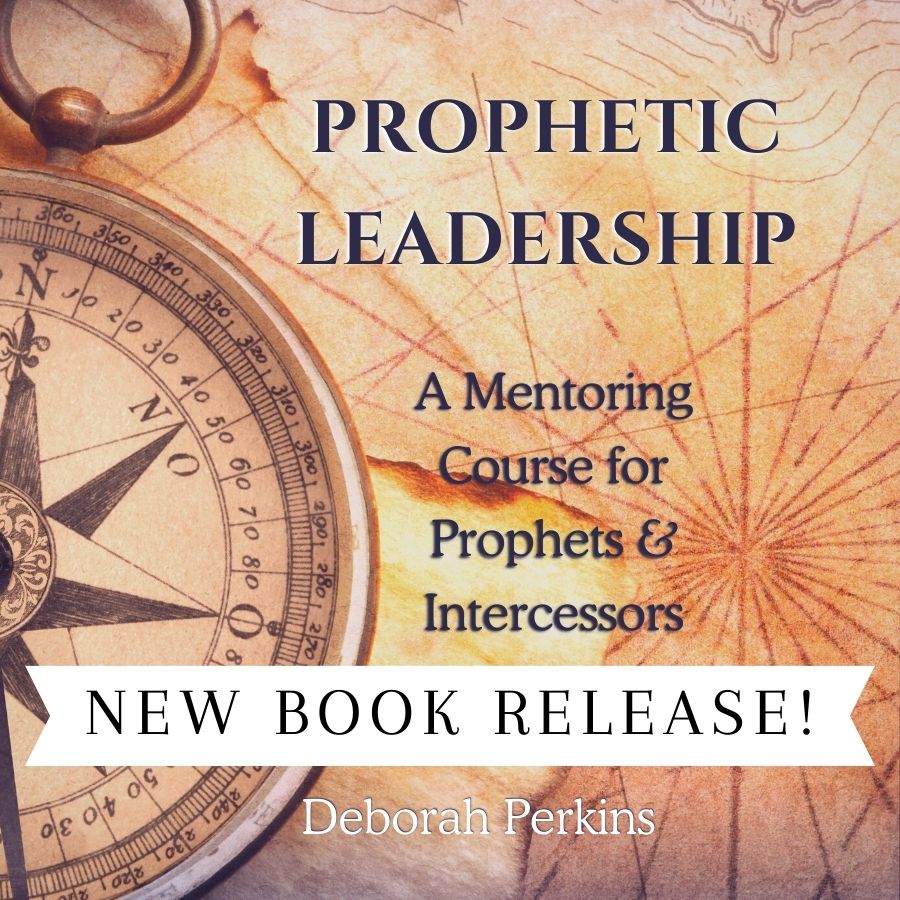|
Too often we want God to agree with us in prayer, when the real work of prayer is to agree with God! We see in scripture that we are to pray with “all kind of prayers and supplications,” and jump joyfully into prayer, asking God to agree with our human assessments of life’s difficult situations. Then we wonder why our prayers didn’t work. I know. I’ve done it! Here are just a few of my not-so-fruitful prayers: “God, would you take that difficult person out of my life?” Or, “Can you please (I even said please!) get me out of this trial?” Or even better: “Make my children (wife, husband, etc) obey you!” I’ve found that God is not interested in agreeing with my flesh. My human nature. Nor will he override someone’s free will to get them saved! While praying through our emotions can be cathartic (David did it in the Psalms), it’s not the most fruitful way to pray. So what really works? The One Thing That Always Works
There is only one thing that bears fruit 100% of the time: the Word of God. How do I know this? From the Old Testament prophet, Isaiah:
For as the rain comes down, and the snow from heaven, and do not return there, but water the earth, and make it bring forth and bud, that it may give seed to the sower and bread to the eater, so shall My word be that goes forth from My mouth; it shall not return to Me void, but it shall accomplish what I please, and it shall prosper in the thing for which I sent it.
Doesn’t it make sense that the more we pray the Word of God, the more fruitful we will be?
Psalm 1 gives us a beautiful picture of a fruitful believer: Blessed is the man who walks not in the counsel of the ungodly, nor stands in the path of sinners, nor sits in the seat of the scornful, but his delight is in the law of the Lord, and in His law he meditates day and night. He shall be like a tree planted by the rivers of water, that brings forth its fruit in its season, whose leaf also shall not wither; and whatever he does shall prosper. (Psalm 1:1-3, NKJV; emphasis mine.)
This isn’t the first time the Lord gives us this key to fruitfulness; He tells Joshua, the High Priest over Israel, the same thing:
“This Book of the Law shall not depart from your mouth, but you shall meditate on it day and night, that you may observe to do according to all that is written in it. For then you will make your way prosperous, and then you will have good success.” ~Joshua 1:8, NKJV
For those of you who shy away from meditation as a New Age practice, let me reassure you: God thought of it first! To meditate, as these verses encourage, is to mutter aloud quietly, to reflect on God’s Words, and to ponder them until they become part of you. (The Hebrew word is “Hagah,” which includes the idea of praying God’s Word back to Him.)
Notice, too, that God Himself speaks His own Words in order to bring things to pass. He did it in Genesis, at creation, and Isaiah tells us that God’s Word is still “going forth from My mouth.” (Isaiah 55:11.) Likewise, God expects us to pray His Words aloud. The picture the apostle Paul paints of the armed prayer warrior in Ephesians 6 is not that of a defensive prayer warrior alone: he calls us to pick up our sword (the Word of God) and to do battle with it! How do we war with the Word in our prayers? Agree with God's WordPsalm 149 is one of my all-time favorite scriptures describing the life of the believer. It perfectly encapsulates the joy of our salvation expressed through worship and intimacy, the honor God gives us as His children, and the victorious way we engage our enemies on the battlefield of prayer. It is a “snapshot” of the believer’s life in God. Look with me at the second part of the Psalm: Let the saints be joyful in glory; let them sing aloud on their beds. Let the high praises of God be in their mouth, and a two-edged sword in their hand, to execute vengeance on the nations, and punishment on the peoples; to bind their kings with chains, and their nobles with fetters of iron; to execute on them the written judgment – this honor have all His saints. (Psalm 149:5-9, NKJV, emphasis mine.)
All of God’s saints are called to pray. Prayer is twofold: it includes both intimacy with the Lord and warfare against our enemy. When we war against the enemy, we are taking God's written decrees and speaking them out loud, using our authority to bind the enemy (who has already been defeated, but is still resisting). God’s Word is our sword, and we wield it every time we pray or praise Him in worship.
Interestingly, there is a related verse in Romans 13:4 which tells us that a governing authority is “God’s minister, an avenger to execute wrath on him who practices evil.” The context, of course, is civil authority and our subjection to it. But as the Lord unfolded this week’s post for me, He brought the scripture in Romans to mind. It is very similar to Psalm 149. Believers have God’s authority to wield the sword and execute spiritual decrees against all of Satan’s cohorts through prayer! It is an honor God bestows on us. A Modern AnalogyThink of it in terms of more modern warfare: You are a soldier in the Army of God. The Word of God is your ammunition. You fire that ammunition on the battlefield of prayer, by using your mouth to declare and enforce the victory God has already given you. The more ammo you carry on the inside of you, the longer you can stay in the battle, and the more effective you will be against your enemy. (To see my favorite resource for praying the Word, click here.) Imagine what would happen if you carried only one “clip” of ammo instead of the three or four a soldier usually carries. After just a few rounds of firing, you’d have to retreat. In the same way, an inadequate knowledge of the Word will limit your effectiveness in prayer. You want to carry as much ammo on your back as possible, so you can outlast your enemy! Praise God, we are not alone in this battle! The Holy Spirit is with us at all times, reminding us of what Jesus said, handing us, if you will, the ammunition we need next based on the strategies God is giving us for our battle. But Holy Spirit cannot remind you of something that you do not already have within you. This is why knowing the Word is so important. As we meditate on the Word, becoming more and more familiar with it, we arm ourselves for every battle we will ever face in the future. We create an internal storehouse for the Holy Spirit to draw upon, which will make us very fruitful in times to come. Agree with the Holy SpiritGod also says in Isaiah 55:11 that He sends each one of His words with a specific purpose: “My word… shall prosper in the thing for which I sent it.” To pray in agreement with God, we must know what He is doing, moment by moment. Of course, the whole counsel of the Bible is relevant, powerful, and effective. But for each situation we encounter, we will need “fresh ammo” from God to really hit the mark with our prayers. That “fresh” ammo is the “rhema” word (Greek for “Spirit-breathed, in the moment”) God has for a situation. For example, let’s say you and I are counseling someone together. We’ll call her “Mary.” Mary has been grieving the loss of her mother for several weeks, and has come to us for prayer, wondering why she is feeling so overwhelmed. Depression surrounds her like a cloud, and she is questioning God’s judgment in taking her mother so soon. She feels she has lost her one true mentor in this life. She wonders if she will ever stop crying. Now, let’s say I am well-intentioned and want to help Mary by using Scripture. I see that Mary is overwhelmed, and that she is not functioning very well in her job because of this grief. So, picking up my “sword,” I tell her that He who loves father or mother more than Jesus is not worthy of Him. (Quoting Matthew 10:27.) I remind Mary that she should deny her feelings and walk by faith, get over this attachment to her mother, trust God and move on with her life. I may even go so far as to bind a spirit of grief, which seems to be blocking her healing. Mission accomplished. Ugh, no! In truth, none of the things I have done are inherently “wrong,” in that Scripture is Scripture and is therefore true. But I have just taken a true Scripture and used it in the wrong way, at the wrong time. I have heaped condemnation, not grace, on Mary. I have even warred against a spirit that probably isn’t there! Grief, especially in the wake of an immediate loss, is a normal emotional process. Fortunately, you are with me on my team! While I’ve been religiously quoting scripture to Mary, you’ve been praying. You perceive, with the help of Holy Spirit, that God is not judging Mary but wants to comfort her. In fact, Holy Spirit is bringing to your mind very specific scriptures that have “rhema,” in-the-moment power to set Mary free. You speak, saying: “Mary, the Lord wants you to know that weeping may endure for a night, but joy comes in the morning. (Psalm 30:5.) He sees your great love for your mother, and He is pleased with your devotion. He knows you feel abandoned, but He wants to remind you that He will never leave you or forsake you.” These words pierce to the center of Mary’s soul. Mary tumbles into your arms, sobbing uncontrollably. God sets her free from fear and releases a flood of emotions, lifting her soul. Mary’s problem was not grief, but a fear of being abandoned. God sent a specific word to heal the exact problem Mary needed help with. You spoke that “word in season,” agreeing with what God was speaking at the moment. God’s specific word had a purpose: to cut through all the confusion of the enemy and show Mary that she is loved, accepted, and has hope for her future. Because you listened for what God was saying through the Holy Spirit, you enabled Mary to exchange overwhelming grief for an overwhelming sense of God’s love for her. Mary emerged from that prayer time free of the fear that God has abandoned her, amazed by His comforting word, and assured that while she may have tears now, joy will come to her again in time. While the above story is fictitious, it gives us several keys: The Holy Spirit will always speak in agreement with the Word of God. Knowing the Word arms us for battle. Listening to the Holy Spirit as we pray gives us the added advantage of purposeful, strategic words we can speak in order to gain the victory. The Holy Spirit provides us with the exact type of ammunition we need for the battle we face! Your most fruitful prayers will always contain Scriptures, whether you pray them from the Word of God or are reminded by the Spirit of God. Without the Word, you have no power or legal authority against your enemies. Without the Spirit, you can become legalistic and harsh, spraying scripture everywhere but missing your target. Your best prayers will contain a balance between the two. How much of your prayer time do you spend praying scripture? Share your comments below!
© Deborah Perkins / www.HisInscriptions.com.
This post contains an affiliate link. To see my policy as an affiliate, visit my "About" page. |
Free Link to the Subscriber Resource Library when you join His Inscriptions!
About
Deborah Perkins Categories
All
Archives
June 2024
AuthorA severe hearing loss from childhood caused Deborah Perkins to develop what she now calls her secret weapon: tuning in to God's voice. A Wellesley College graduate and an award-winning writer, Deborah is now a wife and mother of 3 boys. Deborah has devoted over 25 years to professional and lay Christian ministry in New England and beyond. Her passion is inspiring people to cultivate greater intimacy with God. |



 RSS Feed
RSS Feed






